‘Rocky Horror’ returns to CWU
The cult classic returns to the CWU stage in its fifth rendition of Rocky Horror.
November 4, 2021
The theater darkens as the audience chants “lips, lips, lips” repeatedly. A person in a corset and knee-high stockings sashays out as red lips appear on the screen and the crowd shouts “Thank you!”
The CWU production of “Rocky Horror Picture Show” took place in a packed crowd last Friday, Oct. 29.
“Rocky Horror,” a film originally released in 1975, is a cult classic. When it first came out it was considered a flop after not doing well in box office sales with $21,245 opening weekend.
But since then, the work has garnered a following during midnight showings that turned into people dressing as characters, lip-syncing songs and performing in front of the movie, otherwise known as a shadow cast.
CWU students have gotten in on the act. Since 2016, the Theater Department has put together a shadow cast version of the show every fall.
“Truly, it’s a bad movie,” said Alisa Muench, director of this year’s production. “That’s why it has become what it is. But somehow the more you watch it just the better it gets.”
Muench said she is a huge fan of the movie and said she has watched it over 100 times.
Muench said she loves “creating new members of the cult … I identify as a member of the Rocky Horror cult.”
Character Interpretation
Friday’s performance involved a shadow cast, which was the CWU cast standing in front of the movie acting as the characters on the screen. They dress similarly to the characters and lip-sync along to the movie.
“We’re trying to get them to imitate exactly what’s happening in the movie,” Muench said. “Right before [the song] ‘Time Warp’ stops, Riff Raff’s character is doing this weird thing with his thumb and that’s something I encourage our Riff Raff to do.”
The main part of a shadow cast is that the cast must emulate the characters on screen. There is no character interpretation, unlike stage plays and musicals which “encourage [directors] to interpret the character their own way.” Muench said. “You know you shouldn’t be copying someone when you’re doing the stage musical or play. But for the shadow cast, it’s kind of the whole gimmick is that you are.”
“I think what I really love is seeing my actors come into their characters, like really become the character that they’re playing,” said Muench.
These aspects of character interpretation are also present for the actors.
Shawn Mulligan, a musical theater major who played Riff Raff this year, said, “It really is a show where it’s very much follow what has been done rather than what’s your character analysis. It’s very much what is the character doing here that you can visibly imitate?”
Rehearsals
The cast practiced for five weekends after the Sept. 25 auditions. Eighteen students got roles out of the 50 who auditioned this year.
“I wanted to get involved with something,” said Andy Johnston, history and social studies major who played Rocky in this year’s production. “I had seen the show once before a couple of years ago and I remember it being a really fun show to watch.”
Other than copying the mannerisms of the movie, the performance also had a lot of dancing involved.
“I have not danced in a very long time, at least, like, strenuously danced, and so getting back into that mindset,” Mulligan said. “I have three songs in a row where I have to dance. I have to have enough energy to get through these. I get done with the first of three songs and I’m dying and I’m like well I gotta keep going on to the next one.”
The dancing was especially challenging for Johnston, who had never done a musical before.
“During rehearsals, a lot of [the cast] would know some of the movements already or have their body like already under control,” Johnston said. “With practice, I was able to kind of match them.”
Stoker said lip-syncing makes the performance good for people with little musical, or any acting, experience to participate.
“I’m always very happy it was a lip-sync, because there’s something I can do,” Johnston said. “I actually had no musical theater experiences before this, so I got an opportunity to learn from everybody else and have more professional-like stuff that I didn’t know before.”
Performance
Elizabeth Stoker, theater education major and this year’s stage manager, explained that the biggest challenge for performing and rehearsals is the use of masks. The production’s COVID-19 policy had them masking until the last day of rehearsal.
“We’re lip-syncing to the movie having masks on,” Stoker said. “We don’t see your actors lip-synching.”
During the performance, they were allowed to not wear masks while performing on stage.
There were also difficulties surrounding the performance space and audience size.
Muench said, “We’ve been through a couple loops in terms of where we’ll be performing and how that will work in the space, how many people will be there, who we’re letting in.”
Muench said it all worked out in the end. The production was in McConnel Hall, instead of the SURC Ballroom where it has been in years past and limited the audience number to 570.
The audience sat, sometimes standing to dance, and shouted out callouts like “Say it,” during D. Frank-N-Furter’s “Sweet Transvestite.”
In the end, the lights came up after the cast bowed, ending CWU’s night on the 1975 film.
“It’s managed to endure for so long,” Mulligan said. “The reason it’s endured and it is so important is it is unapologetically brash and entertaining.”

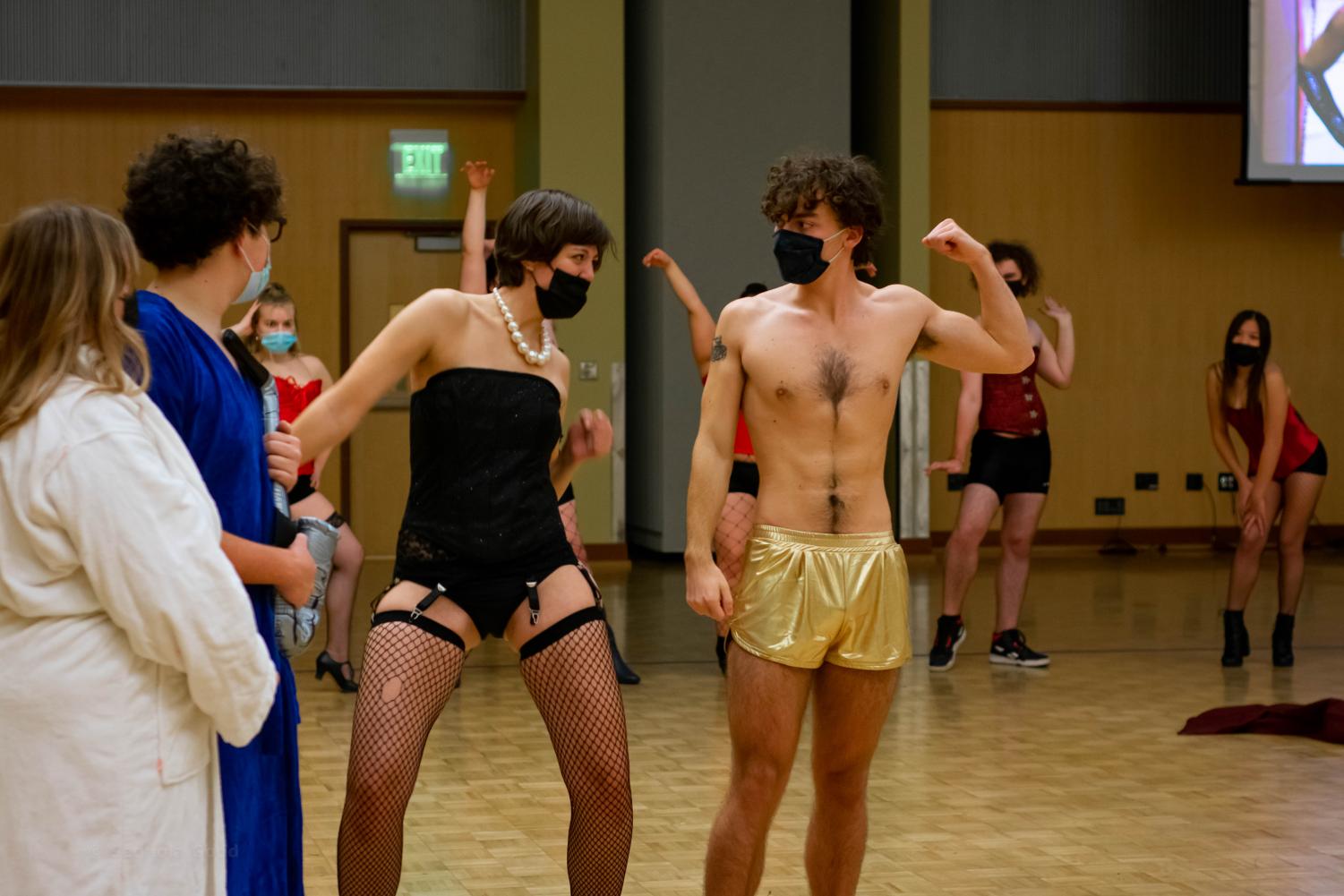
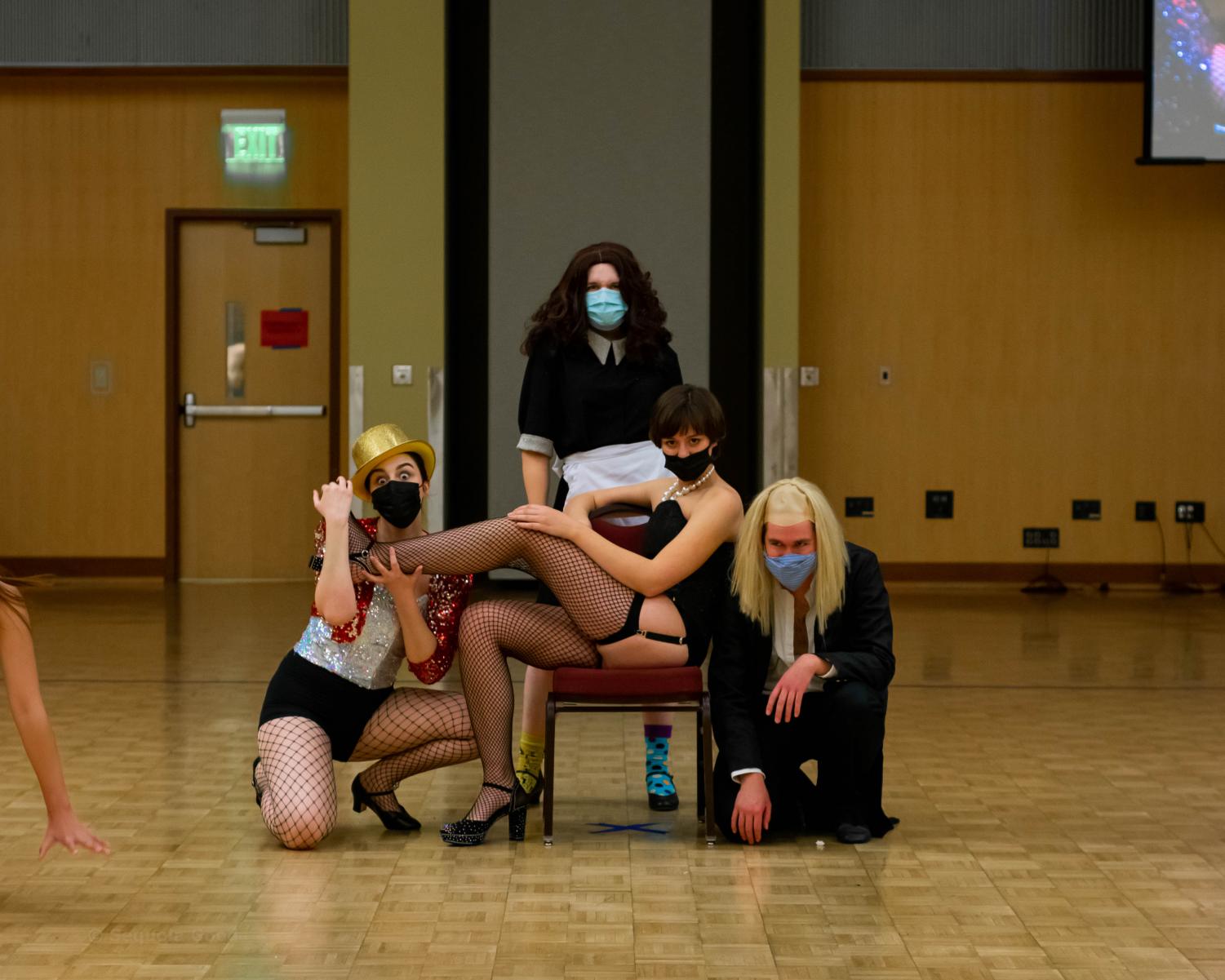
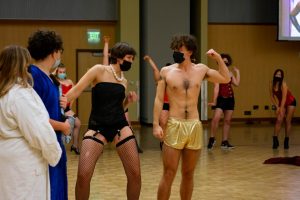
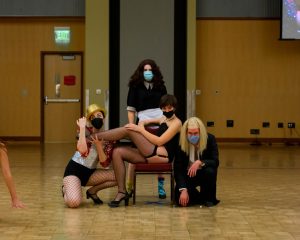
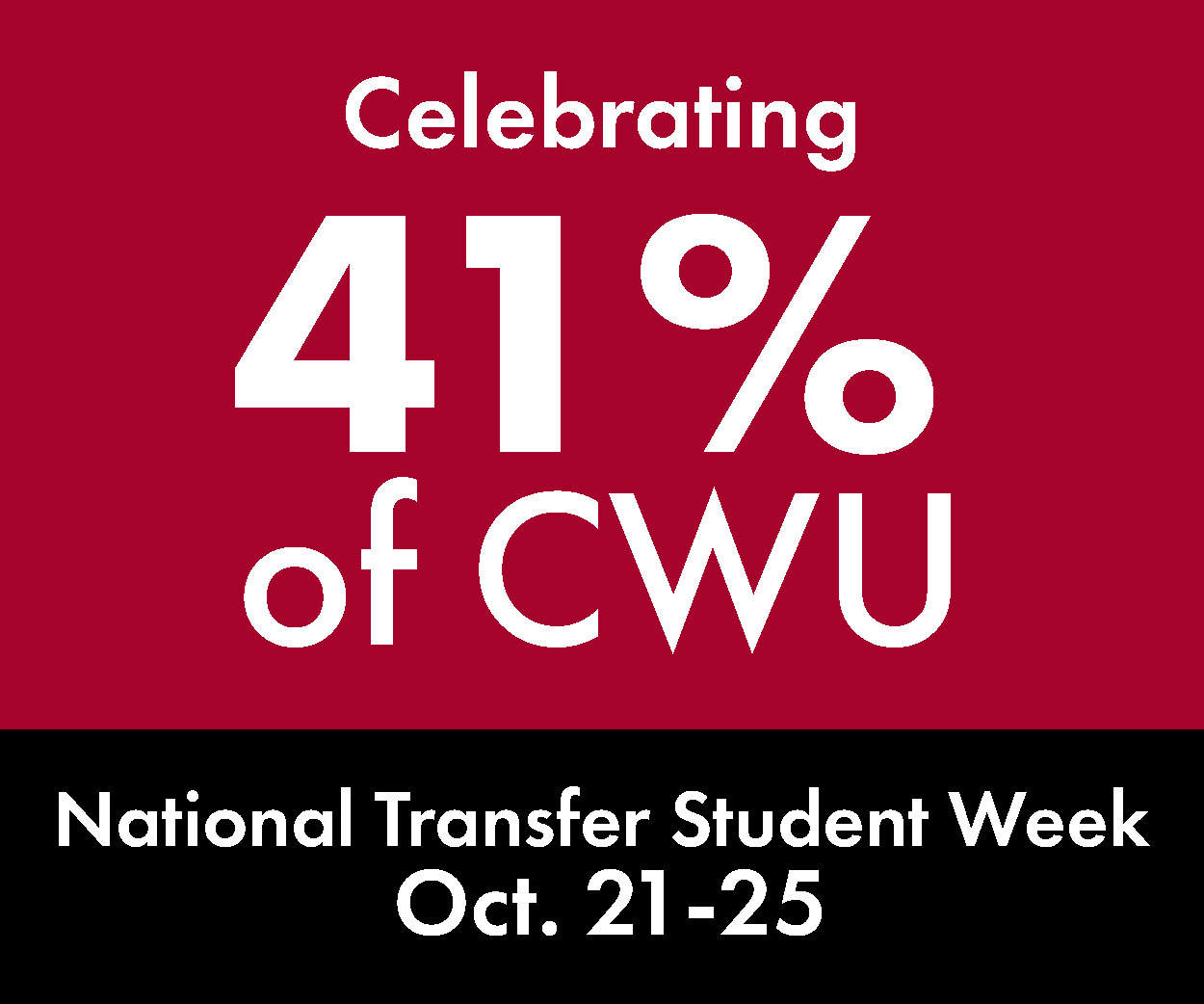
Tim Deegan • Nov 4, 2021 at 8:55 pm
Nice piece on “Rocky Horror”, Katlyn. I was struck by the “lips” chant….my book about how “The Rocky Horror Picture Show” happened to become a midnight movie includes a chapter called “Those Lips”. It tells the story of the lips behind the movie, the poster and the trailer. The book also tells lots more. about RH. The manuscript is now with a prospective agent.
Yes, it was a big flop in 1975, but I worked very hard, against all odds and in an epic struggle with my Fox studio bosses, to let me release the movie at midnight.
It’s been so gratifying to see so many people enjoy the experience for the past 45+ years. Hoping for a Happy 50th in a few years.
Tim Deegan